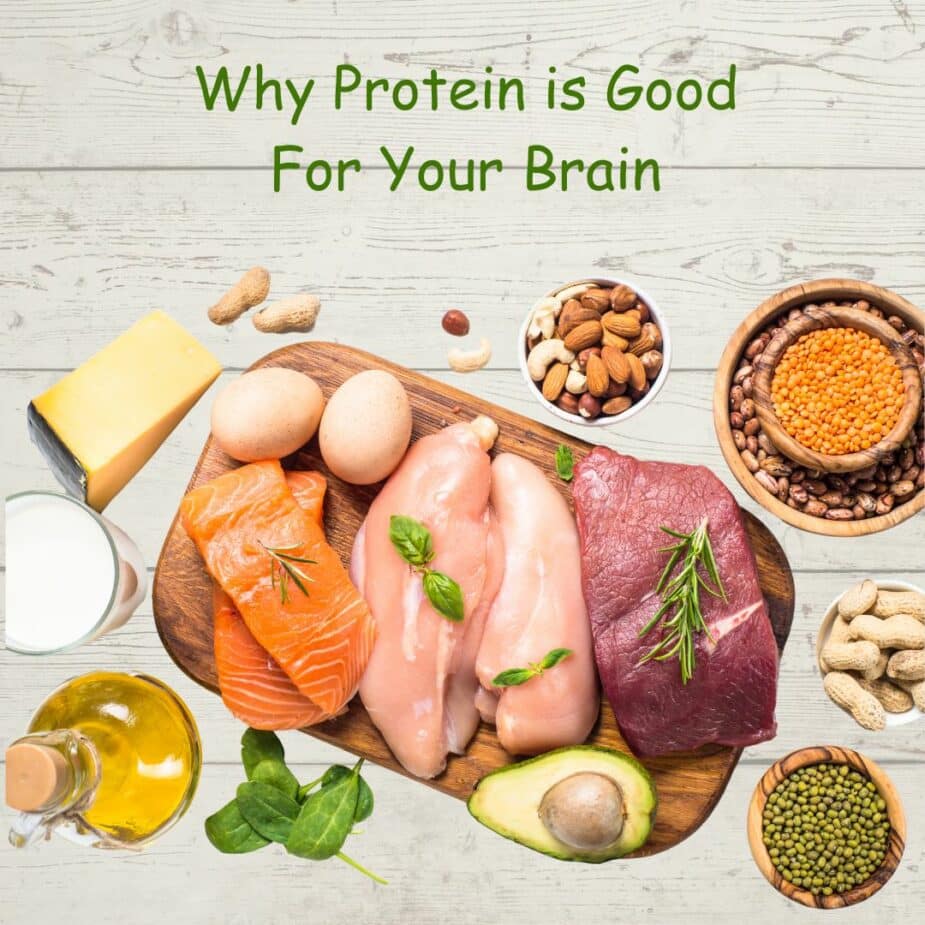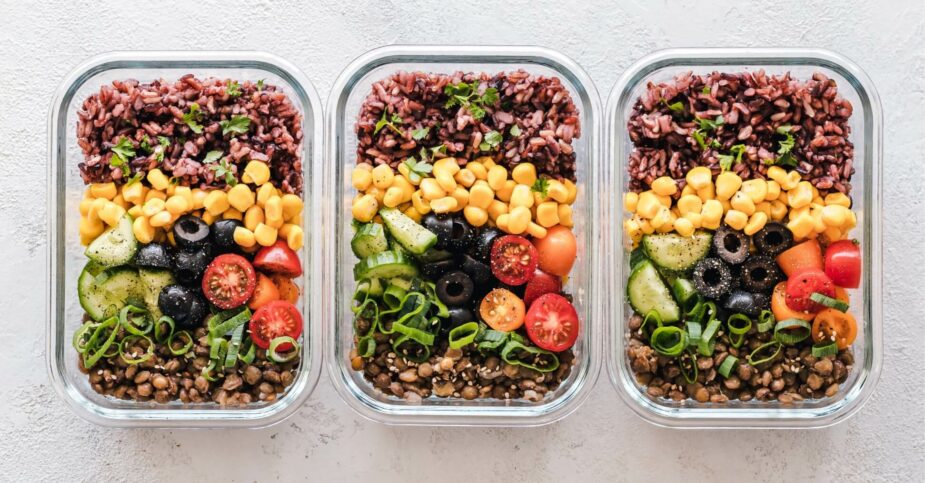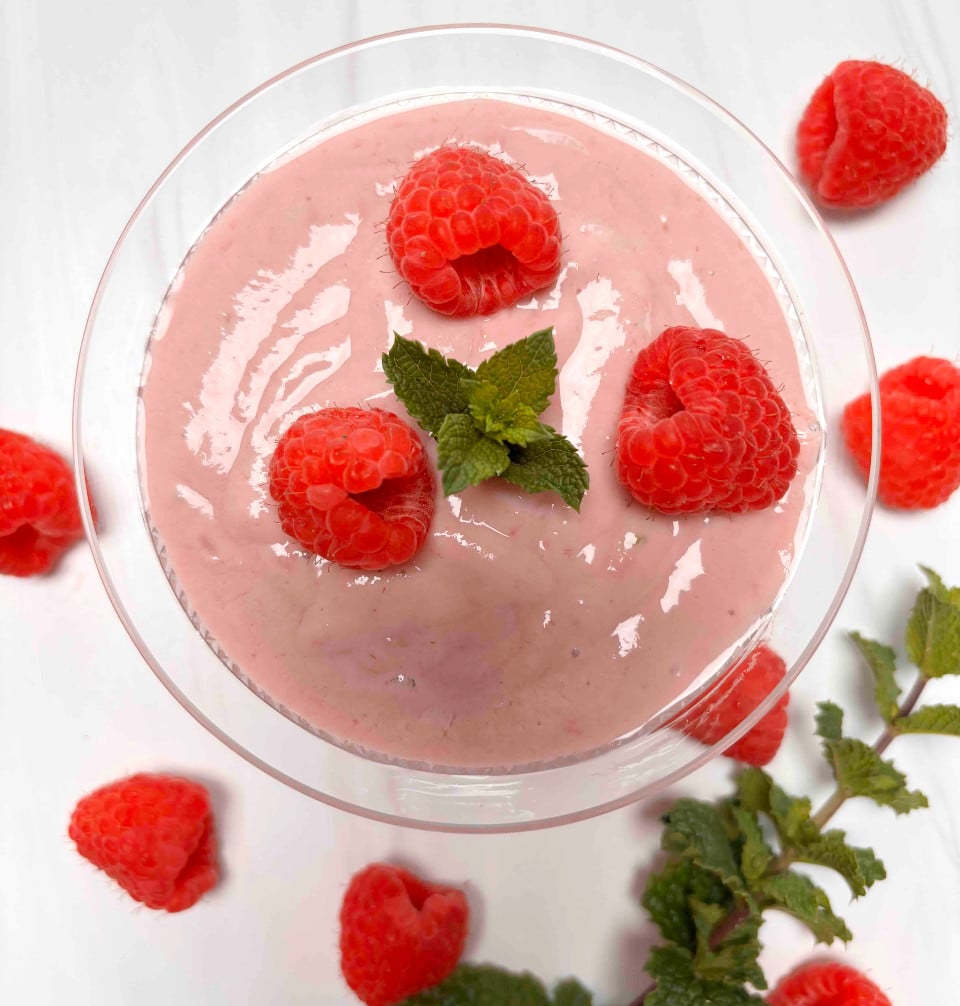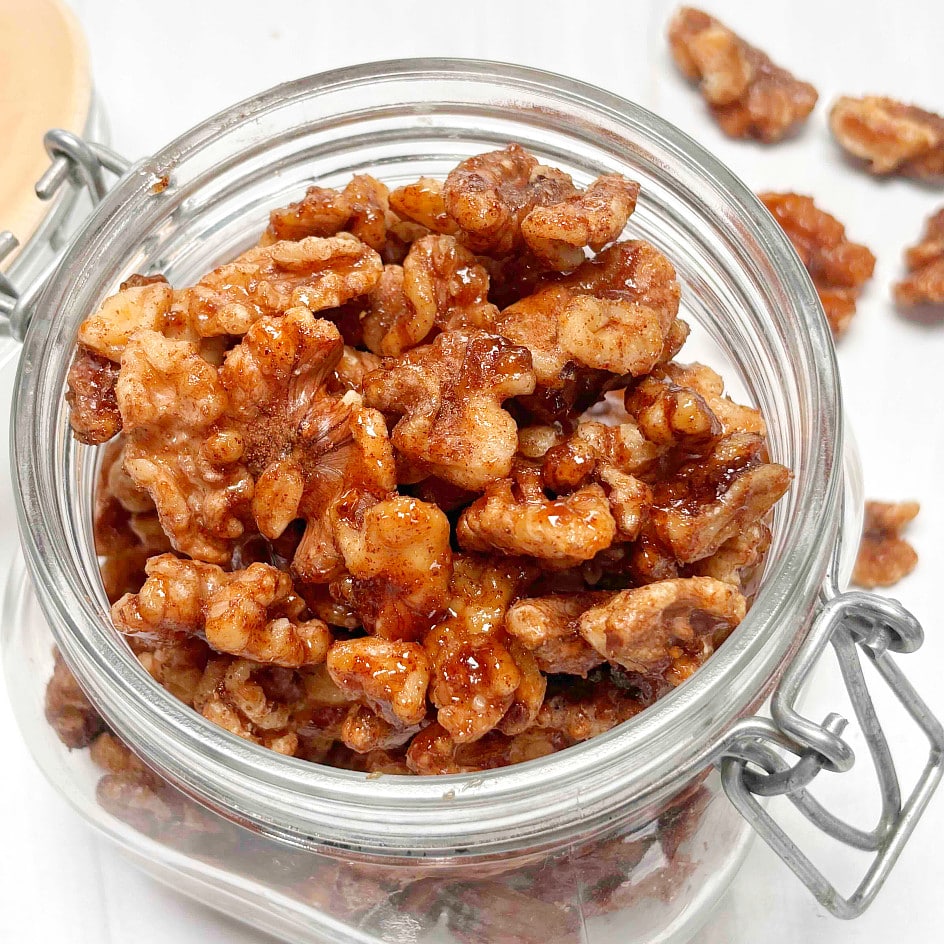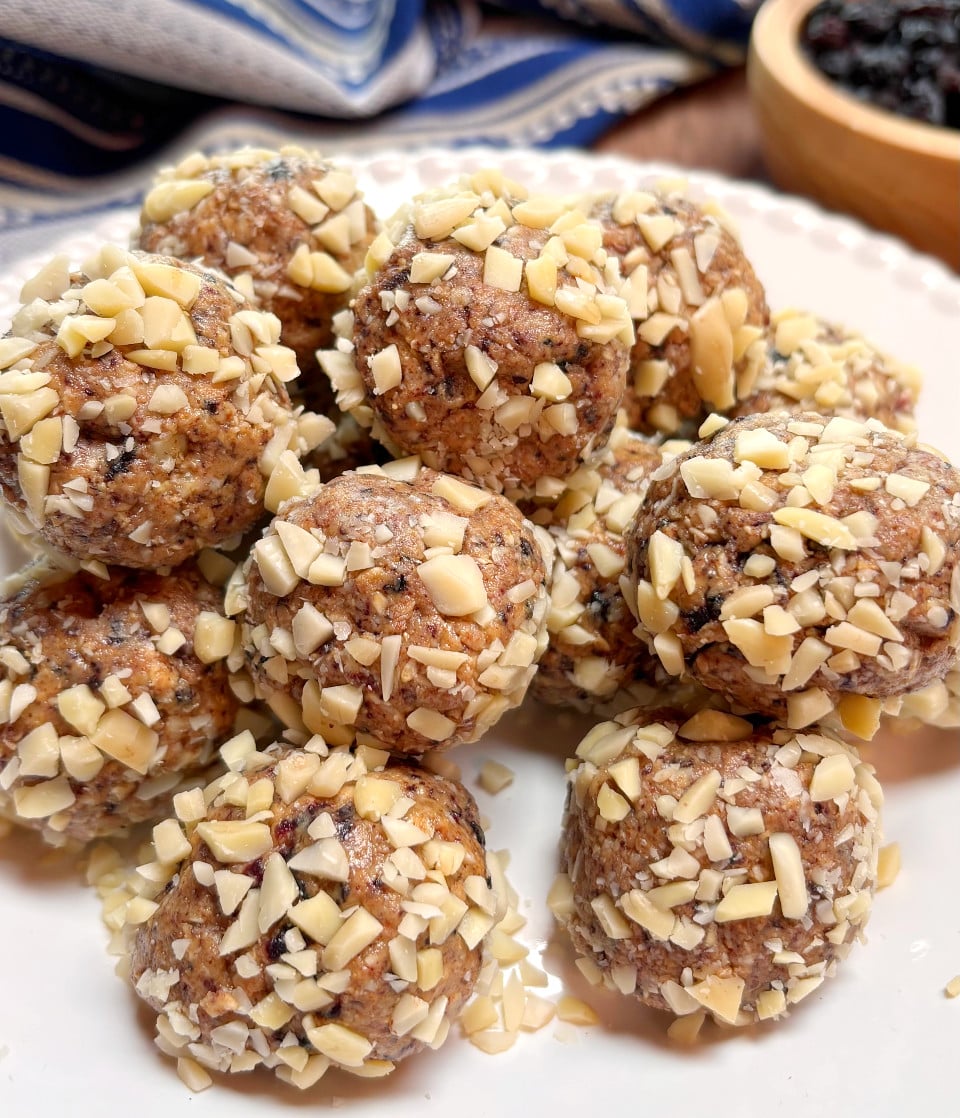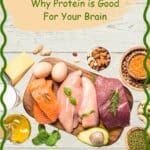You may only think of protein as something that helps build muscle and strength, and while that is one important job, protein affects our body and brain in many other ways. Getting enough protein is especially important for proper brain function too.
But let’s back up…what is protein and why does your brain need protein?
Table of Contents
What is Protein?
Protein is a “macronutrient.” What does that mean? Along with carbohydrates and fat, it is one of the main nutrients our body needs to function. Within each of these “macronutrients” are many other smaller, micronutrients, like vitamins and minerals, and other compounds that are vital for our health.
Now, when it comes to protein, in addition to providing a plethora of vitamins and minerals, proteins are made of a variety of smaller pieces, called amino acids. They are often referred to as “the building blocks of protein”.”
In my mind, it’s helpful to think about Legos. Some amino acids (or blocks) are essential – the only way you can get them is from food – and others are non-essential, meaning your body makes them.

So, with the Lego analogy – my brother and his family gave my mom this cool Lego orchid for Mother’s Day. some of the parts, or blocks, can only be found in this particular kit – the others, you could probably find in your standard Lego pile.
So, amino acids are kind of the same way – some you have to get from food, while others you can pull or create yourself. Okay…this might be a stretch but hopefully you get the idea!
But what’s most important to know is that these little guys are what keep your body functioning. Every amino acid has different functions in our body – and our brain.
How Does Protein Support Our Brain Health?
When it comes to our brain, proteins, specifically amino acids are pretty active little guys. They help support the structure of our brain, build the communication system in our brain, and transport nutrients to different parts of the brain.
6 of the most important ways eating protein supports your brain health include:
1) Building and Repairing Tissue
One of protein’s main roles is building and repairing tissue throughout your body. And this may surprise you, but tissue repair includes your brain cells too – or at least certain ones.
The area of your brain called the hippocampus, which is responsible for memory and learning, is where brain cells are regenerated and renewed.
While one of the primary roles of protein is building and repairing muscles, getting enough protein, as well as the right kinds, is critical for building and repairing the cells in our brain.
2) Hormone Function and Development
Proteins help build and develop hormones. Hormones are the messengers that tell different systems in your body what is needed.
For instance, when you eat, the hormone insulin is released which tells your cells to pick up the glucose (or sugar) from the food and use it for energy.
Hormones also work in your brain and help you focus, stay calm, or get excited. One I’ve talked a lot about is serotonin and how this hormone helps with your mood and sleep. The amino acid tryptophan is responsible for the development of serotonin, the “feel good” hormone.
Serotonin helps regulate your mood and helps you feel calm and focused. You can read more about how serotonin affects your mood and brain health in my Good Food, Good Mood post.
3) Supports the Communication System in Your Brain
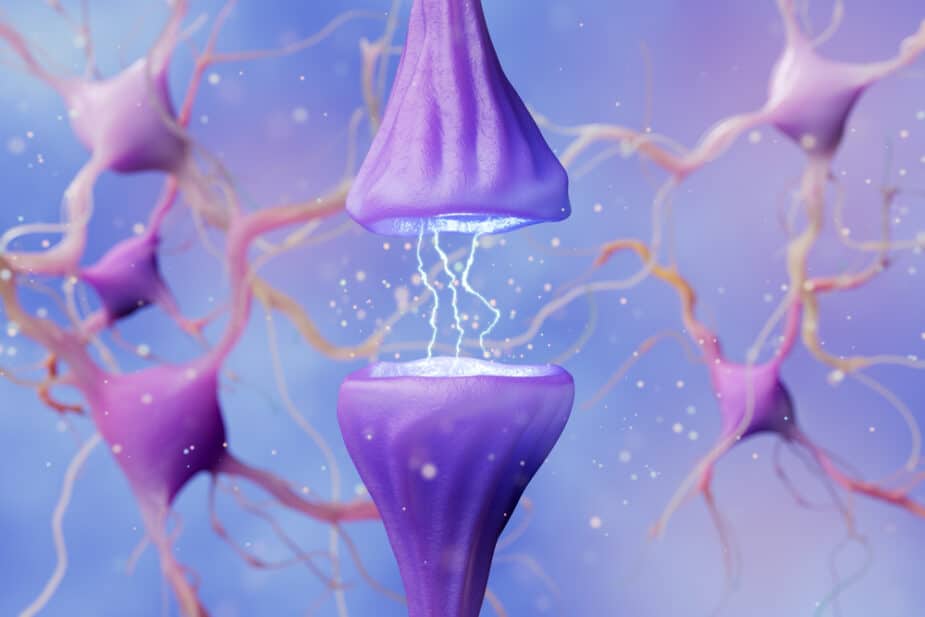
Now, once you have those hormones, they need a way to get to the right places to do their job. This is where your brain’s communication system involving neurons, synapses, and neurotransmitters, comes into play.
Neurons are part of our central nervous system and the pieces that send and receive communication and messages. Think of them like your phone connecting to your best friend’s phone.
Synapses are on every neuron and there are many of them. Think of an old-fashioned switchboard. Every neuron has thousands of synapses that can be triggered and release different neurotransmitters.
Neurotransmitters act as messengers, sending signals between specialized cells in your brain. They tell your brain to release certain hormones to start working. That’s you, picking up your phone, telling your best friend where to meet you.
We used to think that all our neurons and our nervous system were built before we were born – and then that was it. We had all we needed and would ever have. Scientists now believe that we likely continue to build and create neurons throughout our life and protein plays a key role in that.
4) Carrying Oxygen to Your Brain
Our brains, though small, use about 20% of the oxygen we breathe in to function properly. Without enough oxygen, our nervous system can’t operate or communicate with the rest of our body effectively.
This lack of communication means that crucial signals from our brain—such as those telling us to breathe, making our hearts pump, or prompting us to speak or run—can’t reach their destinations.
Oxygen is transported throughout our body by a protein called hemoglobin, which is commonly checked in blood tests by doctors.
A constant supply of oxygen to our brain is essential as it provides energy to brain cells, helping to improve focus and mental clarity.
5) Increasing Satiety – Decreasing Hunger
With the rise in popularity of high-protein diets, the role protein plays in decreasing hunger has become better known and promoted as a benefit. While it is true that protein is filling there are other reasons that eating protein can ward off that hangry feeling.
Protein also affects a couple of hormones that regulate our feelings of hunger.
One is ghrelin, which is called “the hunger hormone.” When we eat more protein, this hormone’s levels decrease, making us feel less hungry.
The second hormone it can impact is called Peptide YY, and that is a hormone that helps us feel full.
While both of these hormones originate in our GI tract they send signals to our brain telling us we are full.
6) Stabilizing Blood Sugar Levels
The final way eating protein can impact our brain is by helping to control our blood sugar levels giving our brains a constant supply of energy. How does this work?

Imagine your blood sugar levels are like a roller coaster at an amusement park. When you consume a snack filled with just carbohydrates, it’s like the roller coaster slowly climbing up the track, anticipation building as you reach the peak.
Carbohydrates are “quick energy” – they are digested and absorbed within 30 minutes to an hour. Your blood sugar rises quickly. But just like on a roller coaster, what goes up must come down.
After reaching the top, the roller coaster plummets down rapidly, leaving your stomach in knots. This sudden drop is akin to your blood sugar dropping – all that energy has been used – leaving you feeling tired, irritable, and hungry – even though you just ate.
Instead, when you combine those carbohydrates with some protein your blood sugar and energy levels remain more steady – like enjoying a gentle, scenic ride through the country instead of the wild ups and downs of a roller coaster.
Why does this happen? It takes our body longer to break down, digest, and absorb protein. So, eating a high-protein snack, combined with carbs will give your body more sustaining energy. Your blood sugar won’t have a dramatic peak, instead, it will rise slowly and stay at a moderate level for a few hours – giving you a more constant supply of energy.
Key Takeaways
Incorporating protein-rich foods into your diet is a simple yet powerful way to boost brain health. Protein does more than just build muscle; it’s about nurturing your brain too.
From supporting hormone function to ensuring oxygen delivery, balancing blood sugar, and even building brain tissues, protein plays a critical role in maintaining cognitive health and overall well-being. Plus, it helps reduce hunger and build brain tissues, making it an indispensable part of a brain-healthy diet.
So, when planning meals and snacks, remember to include protein-rich foods along with whole grains, fruits, and vegetables for a sharper, healthier mind.

